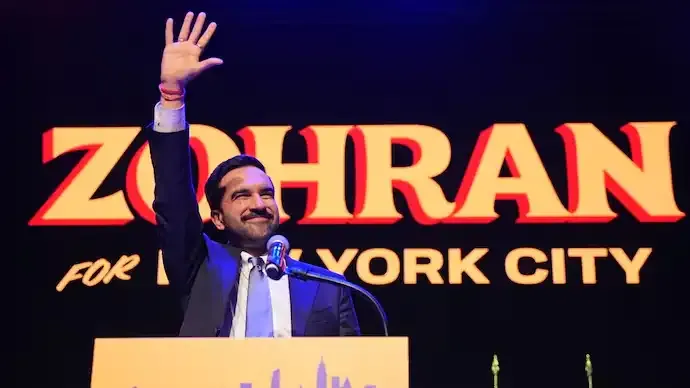Shopping cart
Your cart empty!
Terms of use dolor sit amet consectetur, adipisicing elit. Recusandae provident ullam aperiam quo ad non corrupti sit vel quam repellat ipsa quod sed, repellendus adipisci, ducimus ea modi odio assumenda.
Lorem ipsum dolor sit amet consectetur adipisicing elit. Sequi, cum esse possimus officiis amet ea voluptatibus libero! Dolorum assumenda esse, deserunt ipsum ad iusto! Praesentium error nobis tenetur at, quis nostrum facere excepturi architecto totam.
Lorem ipsum dolor sit amet consectetur adipisicing elit. Inventore, soluta alias eaque modi ipsum sint iusto fugiat vero velit rerum.
Sequi, cum esse possimus officiis amet ea voluptatibus libero! Dolorum assumenda esse, deserunt ipsum ad iusto! Praesentium error nobis tenetur at, quis nostrum facere excepturi architecto totam.
Lorem ipsum dolor sit amet consectetur adipisicing elit. Inventore, soluta alias eaque modi ipsum sint iusto fugiat vero velit rerum.
Dolor sit amet consectetur adipisicing elit. Sequi, cum esse possimus officiis amet ea voluptatibus libero! Dolorum assumenda esse, deserunt ipsum ad iusto! Praesentium error nobis tenetur at, quis nostrum facere excepturi architecto totam.
Lorem ipsum dolor sit amet consectetur adipisicing elit. Inventore, soluta alias eaque modi ipsum sint iusto fugiat vero velit rerum.
Sit amet consectetur adipisicing elit. Sequi, cum esse possimus officiis amet ea voluptatibus libero! Dolorum assumenda esse, deserunt ipsum ad iusto! Praesentium error nobis tenetur at, quis nostrum facere excepturi architecto totam.
Lorem ipsum dolor sit amet consectetur adipisicing elit. Inventore, soluta alias eaque modi ipsum sint iusto fugiat vero velit rerum.
Do you agree to our terms? Sign up

Moments after his historic win as New York City’s first Indian-origin, Muslim, and African-born Mayor, Zohran Mamdani drew inspiration from one of the most defining speeches in modern history — Jawaharlal Nehru’s “Tryst with Destiny.”
Standing before a jubilant crowd of supporters on Wednesday, the 34-year-old Democratic Socialist evoked the midnight spirit of August 15, 1947, when Nehru addressed the newly independent Indian nation. Mamdani quoted the same words that had once marked the birth of India’s freedom:
“A moment comes but rarely in history when we step out from the old to the new, when an age ends and when the soul of a nation long suppressed finds utterance.”
The powerful line, spoken originally by Nehru in the Constituent Assembly 78 years ago, now resonated across a different continent — in the heart of America’s largest city — symbolizing a continuity of struggle, renewal, and hope.
Mamdani’s choice of words was not accidental. His campaign had drawn heavily on themes of equity, inclusion, and social justice, ideas rooted in both progressive American politics and India’s anti-colonial legacy.
In invoking Nehru, Mamdani underscored the universal relevance of India’s independence message — the courage to transition from oppression to empowerment, from division to unity.
“Standing before you, I’m reminded of Jawaharlal Nehru’s words,” he told the cheering audience. “This moment — our moment — too marks a step from the old to the new.”
His victory, achieved after defeating former Governor Andrew Cuomo in one of the most intense mayoral races in recent memory, carries profound symbolic weight. It marks not just a personal triumph but also the arrival of a new generation of immigrant-rooted leadership on America’s political stage.
Nehru’s “Tryst with Destiny,” delivered on the eve of India’s independence, remains one of the most eloquent expressions of human freedom and national awakening. It called on Indians to shoulder the responsibilities of liberty and to build a nation defined by justice, equality, and compassion.
“Freedom and power bring responsibility,” Nehru had said. “The service of India means the service of the millions who suffer.”
In the decades since, those words have inspired movements far beyond India’s borders. From anti-apartheid struggles to civil rights marches, Nehru’s vision of freedom as a moral duty rather than a privilege continues to echo in global politics.
Mamdani’s use of that speech in New York — a city of immigrants, diversity, and reinvention — carried both historical homage and contemporary resonance.
Zohran Mamdani, the son of Ugandan-Indian academic Mahmood Mamdani and filmmaker Mira Nair, has long positioned himself as a bridge between cultures and continents. His mayoral campaign focused on housing justice, workers’ rights, and community-led governance, reflecting the socialist ethos of inclusion.
His quoting of Nehru, therefore, served not merely as a ceremonial gesture but as a statement of ideological continuity — one that situates modern progressive politics within the longer arc of anti-colonial and humanitarian struggles.
Political observers noted the deeper symbolism of the moment: an Indian-origin leader in the West invoking the founding father of India’s democracy — reaffirming the shared ideals of freedom, equality, and pluralism that bind nations across time and geography.
“Long years ago, we made a tryst with destiny, and now the time comes when we shall redeem our pledge... At the stroke of the midnight hour, when the world sleeps, India will awake to life and freedom... A moment comes, which comes but rarely in history, when we step out from the old to the new, when an age ends, and when the soul of a nation long suppressed finds utterance.”
Zohran Mamdani’s victory and his invocation of Nehru’s words underscore the timeless universality of India’s founding ideals. What began in 1947 as a promise to awaken a nation has, decades later, become a global vocabulary of hope — one that transcends geography, faith, and politics.
By quoting Nehru, Mamdani reminded the world that freedom’s true measure lies not in power, but in service, justice, and moral renewal — values that remain as relevant in 21st-century New York as they were in independent India’s first dawn.
22
Published: Nov 05, 2025